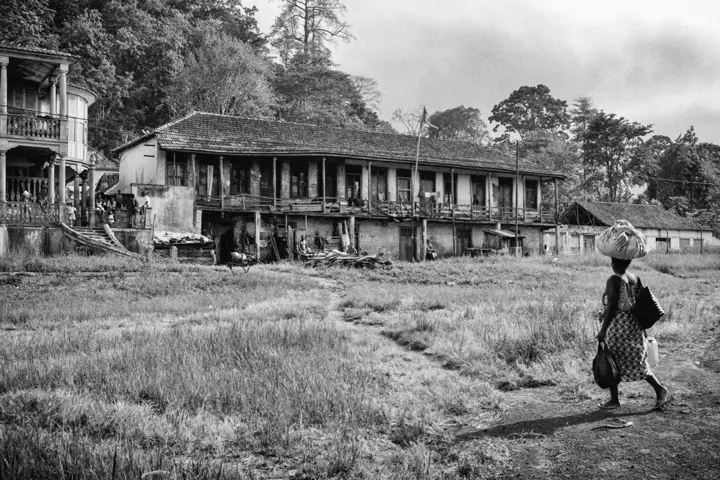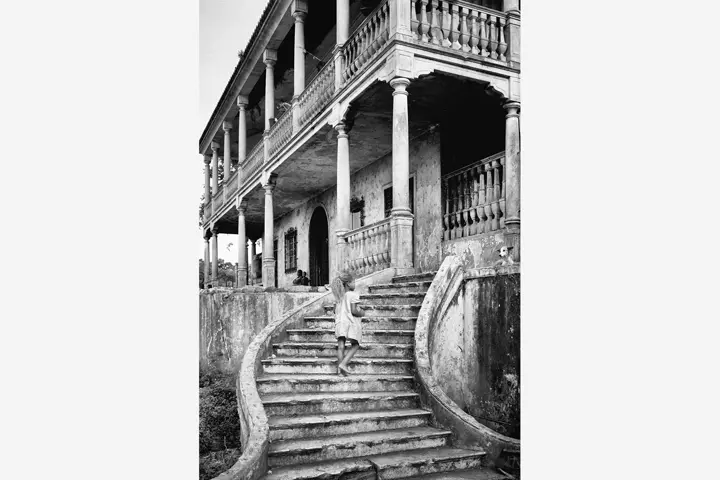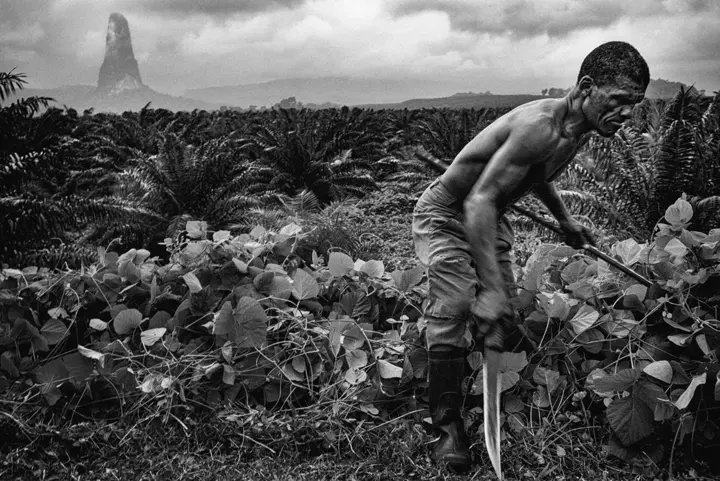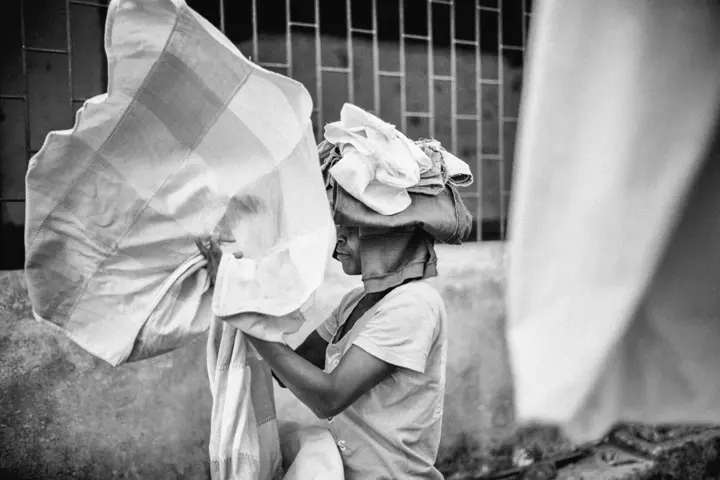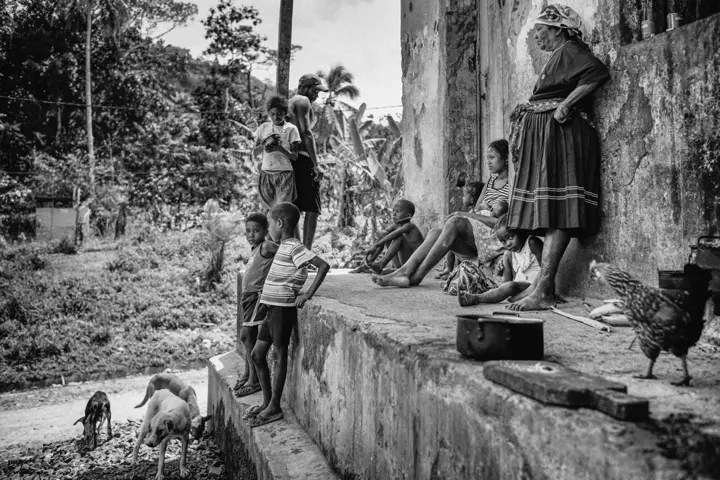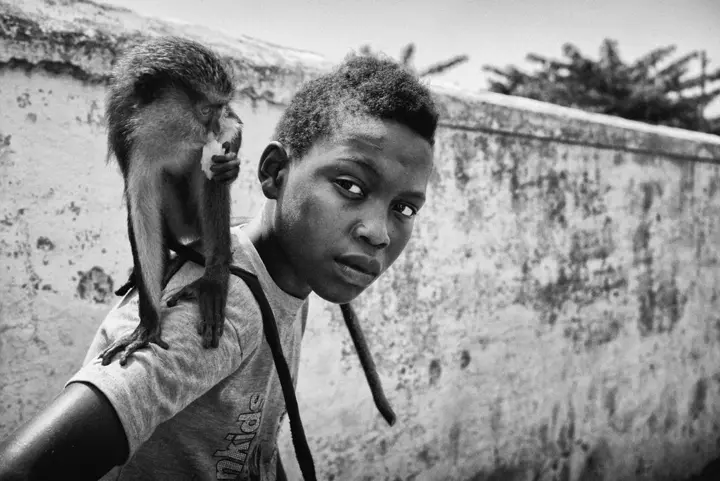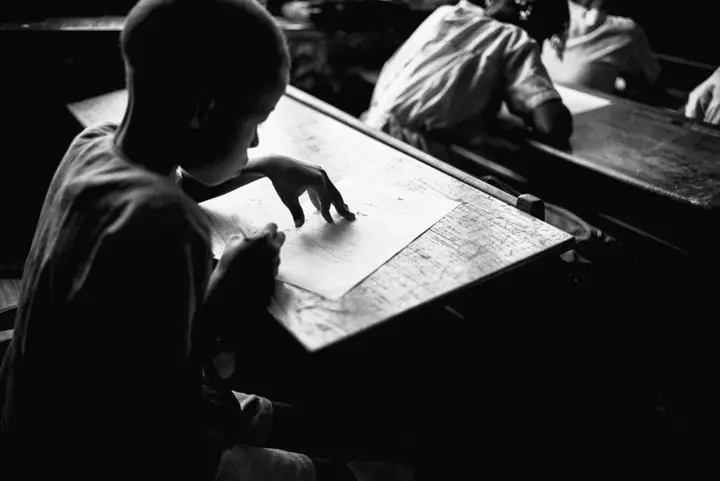Stricken by the adverse conditions of extreme hunger that, in the 40’s of the XX century, unmercifully ravage the Cape Verde, the portuguese colonists found in the recruitment of Cape-Verdean servants an inexhaustible source of resources capable of enduring such arduous labor. For the unfortunate Cape-Verdeans, the recruitment represented a hope and the only opportunity of escaping the hunger and death reign their homeland. Even though conscious of the likelihood of being taken advantage of, in their misfortune, the Cape-Verdeans embraced the recruitment offered to them, in a mix of dissimilar feelings, miscellaneous motivations and dreams of prosperity in the fertile lands of S. Tomé & Principe.
The hard fact are the images and the expressions of resignation of the last recruited documented in the book, revealing us the severe life once dedicated to a land they embraced as their own and that, 40 years after, they affirm rather dying that being taken away from it.
“Heirs of Slavery” exposes a view over the soul of those women and those men and tries to dismantle the inevitability thesis of the situations those beings fell into. This prologue aims to help finding the etiology of the situation that is not spontaneously generated. The abandonment of the rural populations of the Cape-Verde archipelago where voted for their regime of Oliveira Salazar; the profiting of the ad-hoc commissaires and the subcontractors installed on the archipelago who took advantage of these poor bastards; the revenues that navigation companies had with the transportation of recruitment slavery; the fees and briberies that changed from the hands of the exploiters masters to the hands of the corrupted authorities; in short, an endless number of situations and of crooks that slather on this slow death business decisively contributed to the disgrace of these brothers of ours, leaving them in the situation of vulnerability captured by the lenses of Pedro Matos.
To look each photo of this magnificent work and be carried away to a place where we want to change the page of history, set the unique beauty there is in each child, man and woman, despite the ragged attire, the broken stairs, the train tracks covered by vegetation, and remember always, each second, that human dignity is not negotiable.
Born in Aveiro, Portugal, in 1970. Since always worked in the field of communication, at marketing and empresarial communication as well as editorial projects of information.
In the 90s does his first travels to Mozambique. Africa would be determinant in how begins to observe and analysing the world. In 2000, assumes the role of Director of Communication and Marketing of an angolan empresarial group. In the 10 years that passed between Portugal and Angola only served to intensify even more his passion for the african continent. Coordinated also the editorial project Executive Angola, a specialized publication about Angolan economy.
Photography, besides being an essential tool in all his works, is also an immense passion. Humanist and documentarist photographer, is also a lover of the tremendous cultural diversity of humanity
Leica Gallery Porto
Leica Gallery Porto Rua de Sá da Bandeira, 48-52
4000-427 Porto
Portugal
Saturday: 10:00 - 13:00 and 14:00 - 18:30
Sunday: closed
